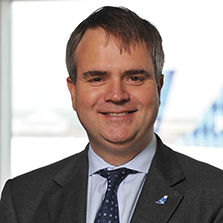
When JetBlue in April, made an unsolicited bid to acquire
Spirit Airlines after Spirit had agreed to a merger with Frontier Airlines, it
left some in the travel industry scratching their heads. The carrier offered
Spirit $3.6 billion, a 24 percent boost over Frontier's February proposal of
$2.9 billion, which Spirit already had accepted. It also came at a time when
JetBlue was in the midst of operational difficulties, had made significant capacity
cuts and was continuing to lose money.
JetBlue CEO Robin Hayes was undeterred. He called the proposed
deal a "game changer" that would allow the New York-based carrier to better
compete on a national scale. The combined carriers would have about 455
aircraft with 312 Airbus planes on order and would bring new destinations to
JetBlue's network.
Spirit's board, however, unanimously rejected the offer, citing
the U.S. Department of Justice's antitrust suit against JetBlue's partnership with
American Airlines, dubbed the Northeast Alliance. The board expected the deal
would fail to get government approval, even after JetBlue threw in a $200
million reverse break-up fee should that expectation come to fruition.
JetBlue persisted over the spring and into the summer. Frontier
upped its offer for Spirit, and JetBlue did the same, doubling the reverse
break-up fee and increasing its proposal to $3.8 billion. Spirit's board
declined again, reiterating its lack of confidence in regulatory approval, but
it also kept postponing its shareholder vote on the Frontier deal—four times in
total.
By the end of July, it was clear Spirit's shareholders were
leaning toward the JetBlue deal. Frontier and Spirit called off their merger
plans and a day later, JetBlue announced Spirit they had agreed to the
acquisition. Spirit's shareholders voted in October to approve the deal, which
Hayes has said is expected to close in the first quarter of 2024.
Regulatory approval still is not a sure thing. Closing
arguments in the trial on the Justice Department's lawsuit, which started in
September, took place Nov. 18, and the judge's decision is not expected for
several weeks.
In the meantime, JetBlue recently announced Paris as its
second European destination after launching service to London's Heathrow
Airport from Boston in 2022 and from New York in 2021)—the latter of which
earned Hayes a spot on last year's 25 Most Influential
list.
JetBlue's move "has brought in additional competition,"
said OAG chief analyst John Grant, adding that coupled with Fly Atlantic, a new
Belfast-based carrier offering transatlantic flights, "this might act as a
brake on fare increases. JetBlue has been quite successful, and the Airbus 321
XLR will give others a change to try some things. But even JetBlue is treading
cautiously in the market."